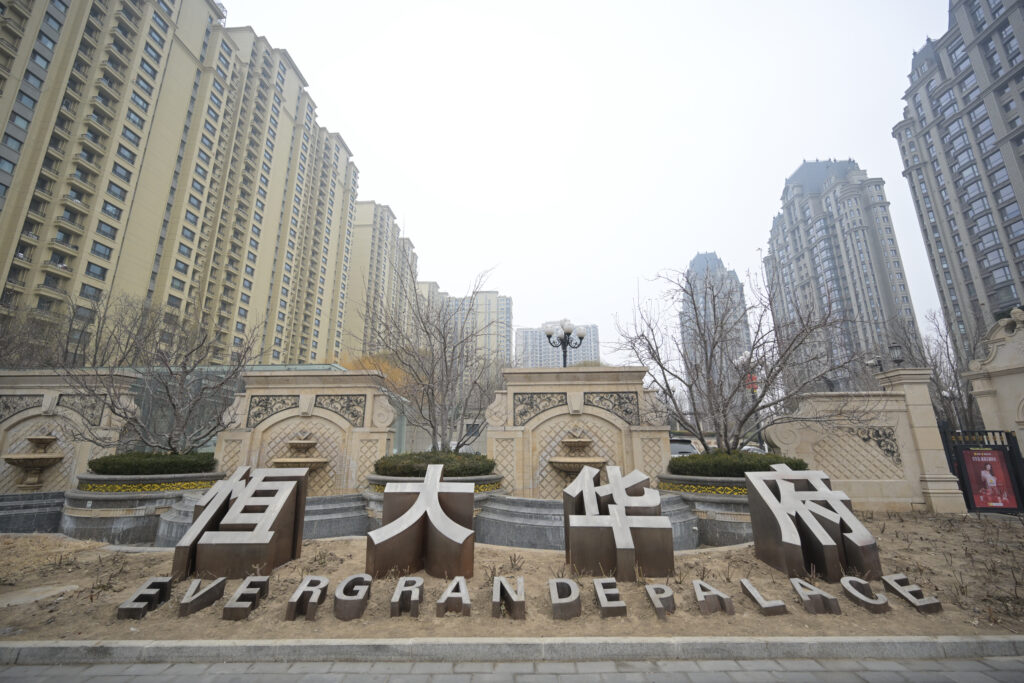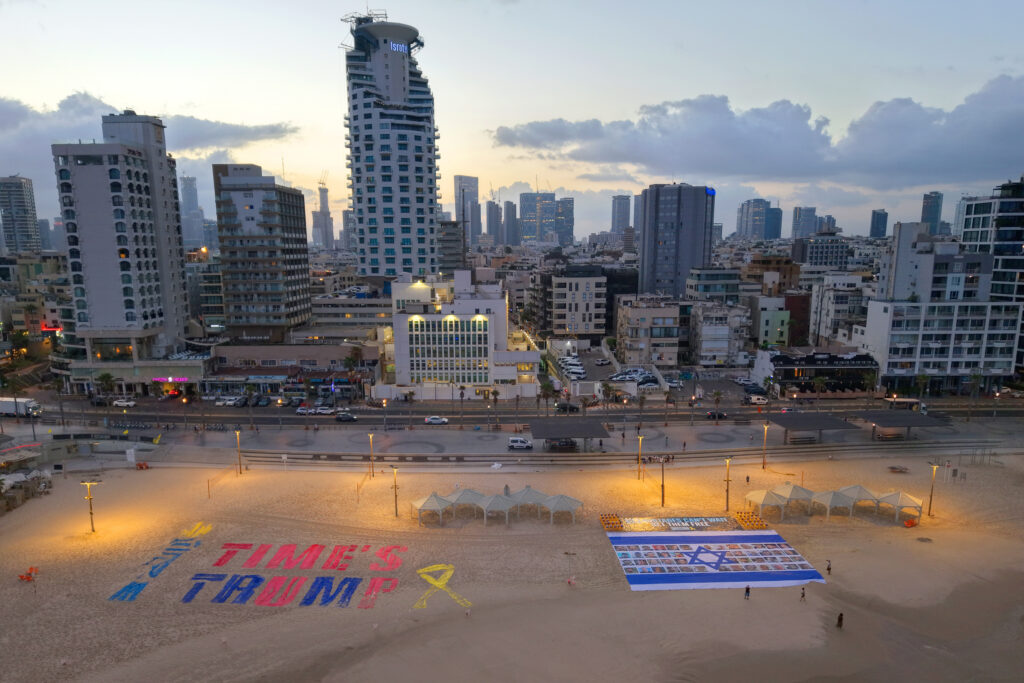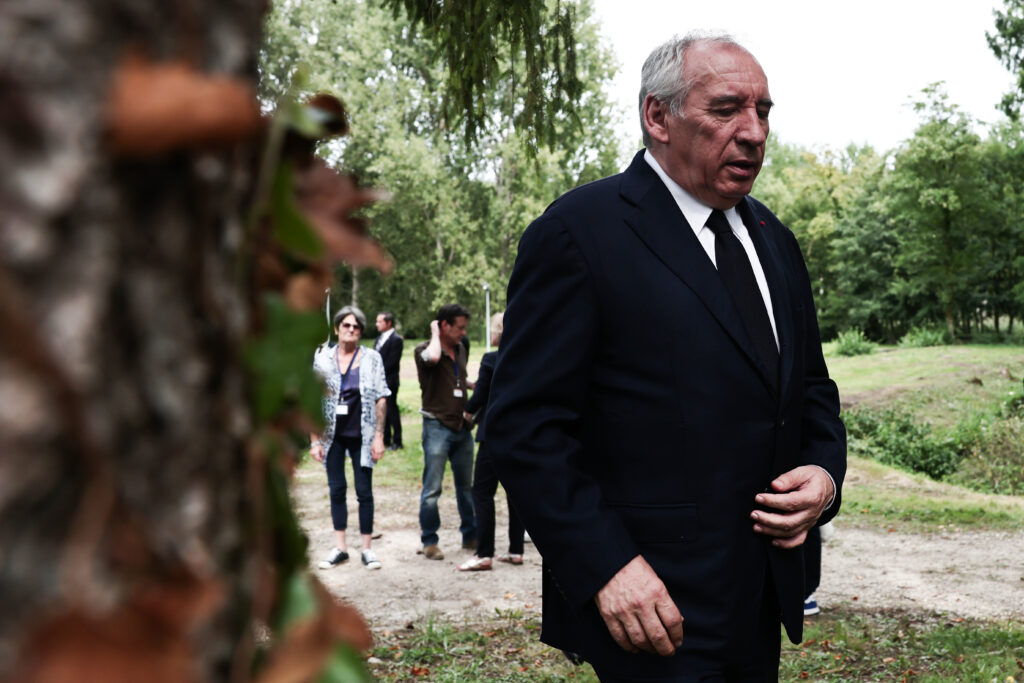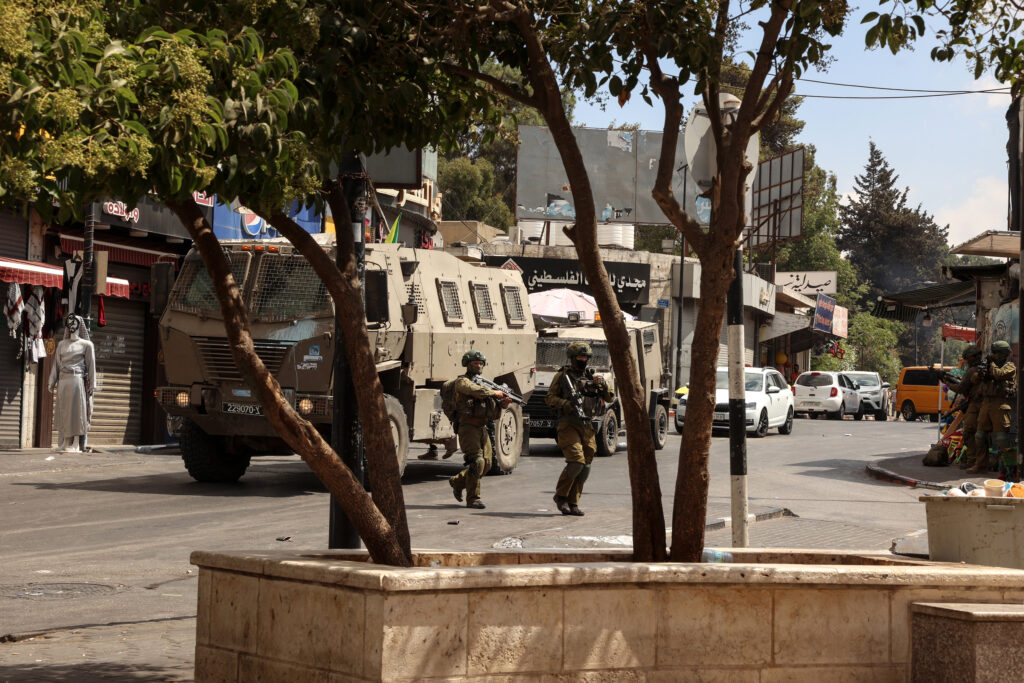AFP Asia Business
Evergrande: China’s indebted, delisted property behemoth
When traders kicked off another week of action at the Hong Kong Stock Exchange, data on the shares of one previously high-soaring firm was nowhere to be seen.China Evergrande Group — once the country’s top property developer but now mired in debt as the industry struggles to regain its footing — had seen its shares …
Evergrande: China’s indebted, delisted property behemoth Read More »
Israeli protesters demand hostage deal as cabinet meets
Thousands of demonstrators massed in Tel Aviv on Tuesday, seeking to push the government to end the war in Gaza and strike a deal to return hostages, as the security cabinet convened.The first protests began at daybreak as demonstrators blocked roads in the commercial hub, where they waved Israeli flags and held up pictures of the hostages, AFP journalists reported.Israeli media said others rallied near the US embassy branch in the city, as well as outside the houses of various ministers.Hours later as the sun set over Tel Aviv, thousands more gathered in “Hostage Square”, which has served as a focal point for the protest movement for months. People in the crowd sounded air horns, blew whistles and banged on drums as they chanted: “The government is failing us, we won’t give up until every hostage is home.””I’m here first and foremost to protest, and to call for the government to make a deal and bring all the hostages home and to end the war,” said demonstrator Yoav Vider, 29. Following the cabinet meeting, Prime Minister Benjamin Netanyahu later spoke at an event Tuesday evening, remaining vague about the government’s intentions as Israeli media reported the meeting had been inconclusive. “We have just come from a cabinet meeting. I don’t think I can elaborate too much,” said Netanyahu.”But I will say one thing: It started in Gaza, and it will end in Gaza. We will not leave those monsters there.”Israel is under mounting international pressure to wrap up its Gaza campaign, with Donald Trump’s envoy saying the US president would host a meeting on post-war plans for the shattered enclave Wednesday.”We’ve got a large meeting in the White House tomorrow, chaired by the president, and it’s a very comprehensive plan we’re putting together on the next day,” Steve Witkoff said on Fox News Tuesday, without offering more details.- Cabinet meeting -The security cabinet approved a plan in early August for the military to take over Gaza City, triggering fresh fears for the safety of the hostages and a new wave of protests that has seen tens of thousands take to the streets.Netanyahu last week ordered immediate talks aimed at securing the release of all remaining captives in Gaza, while also doubling down on the plans for a new offensive to seize Gaza’s largest city.That came days after Hamas said it had accepted a new ceasefire proposal put forward by mediators that would see the staggered release of hostages over an initial 60-day period in exchange for Palestinian prisoners held by Israel.In Doha on Tuesday, Qatari foreign ministry spokesman Majed al-Ansari told a regular news conference that mediators were still “waiting for an answer” from Israel to the latest proposal. “The responsibility now lies on the Israeli side to respond to an offer that is on the table. Anything else is political posturing by the Israeli side.”Earlier in the day, the families of hostages in Tel Aviv lambasted the government for failing to prioritise a deal that could see those still held captive in Gaza released.”Prime Minister (Benjamin) Netanyahu prioritises the destruction of Hamas over releasing the hostages,” said Ruby Chen, whose son was abducted by militants in October 2023. “He believes it is OK and it is a valid alternative to sacrifice 50 hostages for political needs,” he said in a speech to one of Tuesday’s demonstrations.- Journalists killed -Pressure is building on Israel both at home and abroad to end its campaign in Gaza, where famine has been declared and much of the territory has been devastated.On Monday, Israeli strikes hit a Gaza hospital, killing at least 20 people, including five journalists working for Al Jazeera, the Associated Press and Reuters, among other outlets.Governments around the world, including staunch Israeli allies, expressed shock at the attack.The Israeli military on Tuesday said its forces were targeting a camera operated by Hamas in two strikes that killed the reporters. “Six of the individuals killed were terrorists,” it said, adding that the chief of staff instructed “to further examine several gaps”, including the “authorisation process prior to the strike”.Hamas later rejected the allegations, calling them baseless. The war in Gaza has been one of the deadliest for journalists, with around 200 media workers killed in the nearly two-year Israeli assault, according to press watchdogs.Later Tuesday, Gaza’s civil defence agency reported that at least 35 people were killed in attacks throughout the Palestinian territory.Media restrictions in Gaza and difficulties in accessing many areas mean AFP is unable to independently verify the tolls and details provided by the civil defence agency or the Israeli military.The war was sparked by Hamas’s October 2023 attack on Israel, which resulted in the deaths of 1,219 people, mostly civilians, according to an AFP tally based on Israeli figures.Out of 251 hostages seized during the attack, 49 are still held in Gaza, including 27 the Israeli military says are dead.Israel’s retaliatory offensive has killed at least 62,819 Palestinians, most of them civilians, according to figures from the health ministry in Hamas-run Gaza that the United Nations considers reliable.
French political turmoil sends European stocks down, Wall Street edges up
European stock markets and shares in French banks fell Tuesday as investors fretted over fresh political turmoil in France.The Paris stock market tumbled and French borrowing costs rose over fears that France’s minority government could be toppled, after Prime Minister Francois Bayrou proposed a confidence vote to break an impasse over his proposed budget cuts.”Delaying …
French political turmoil sends European stocks down, Wall Street edges up Read More »
Israeli forces raid exchange office in West Bank’s Ramallah
Israeli forces raided the occupied West Bank city of Ramallah on Tuesday, targeting a currency exchange and, according to the Red Crescent, leaving dozens of Palestinians wounded.Israel carries out frequent raids across the West Bank, where tensions have remained high throughout the Gaza war, but incursions into central Ramallah — seat of the Palestinian Authority — are relatively rare.A military statement said that “forces conducted a targeted raid on a currency exchange business that transfers terror funds to Hamas”, the Palestinian militant group whose October 2023 attack on Israel triggered the ongoing war in Gaza.The forces arrested five people “suspected of terrorist activity” and confiscated “hundreds of thousands of shekels that were identified as terror funds”.The Palestine Red Crescent Society said that the Israeli operation left at least 27 people wounded, eight of them by live fire, 14 by rubber bullets and five by shrapnel. Another 31 people were treated for tear-gas inhalation.An AFP journalist saw soldiers on the ground around Al-Manara Square in the city centre and on balconies overlooking it.”Special forces suddenly stormed” the area, said witness Ihab Abu Sneineh, a 22-year-old shopkeeper.”We didn’t know what was happening,” he told AFP, adding that the forces were “storming from all directions” before entering an exchange office near his shop.Palestinians were throwing stones at troops as they began the operation, the AFP journalist said.Witnesses told AFP that the army withdrew in the early afternoon.According to the Red Crescent, its teams treated a 12-year-old boy shot in the back and a 71-year-old man wounded in the raid.The medical organisation also accused Israeli forces of impeding the evacuation of wounded people.Since the Gaza war began, Israeli raids on Palestinian population centres, particularly in the northern West Bank, have intensified.Previous Israeli operations, earlier this year and in December 2023, have similarly targeted currency exchange offices.Egypt condemned Tuesday’s raid and the “aggressive and extremist Israeli policies”, dubbing Israel “the main source of destabilisation in the region”.Since the start of the Gaza war, Israeli troops or settlers in the West Bank have killed at least 972 Palestinians, including militants and civilians, according to an AFP tally based on Palestinian Authority figures.In the same period, at least 36 Israelis, both civilians and security forces, have been killed in attacks or during military operations in the territory, according to Israeli figures.Israel has occupied the West Bank since 1967.vid-lam-crb-ds/ami/jsa
Israeli protesters demand hostage deal as cabinet set to meet
Protesters demanding an end to the Gaza war and the return of hostages to their homes took to the streets in Israel on Tuesday ahead of a security cabinet meeting scheduled for the evening.Demonstrators blocked roads in commercial hub Tel Aviv, where they waved Israeli flags and held up pictures of the hostages, AFP journalists reported. Israeli media said others rallied near the US embassy branch in the city, as well as outside the houses of various ministers. “Prime Minister (Benjamin) Netanyahu prioritises the destruction of Hamas over releasing the hostages,” said Ruby Chen, whose son was abducted by militants in October 2023. “He believes it is OK and it is a valid alternative to sacrifice 50 hostages for political needs,” he said in a speech to one of Tuesday’s demonstrations.Protests were expected to swell in Tel Aviv later in the day. The agenda of the security cabinet meeting has not been officially confirmed, but Israeli media reported that it could be to discuss ongoing negotiations for a ceasefire and hostage release deal.The cabinet approved a plan in early August for the military to take over Gaza City, triggering fresh fears for the safety of the hostages and a new wave of protests that has seen tens of thousands take to the streets. Netanyahu last week ordered immediate talks aimed at securing the release of all remaining captives in Gaza, while also doubling down on the plans for a new offensive to seize Gaza’s largest city. That came days after Hamas said it had accepted a new ceasefire proposal put forward by mediators that would see the staggered release of hostages over an initial 60-day period in exchange for Palestinian prisoners held by Israel.In Doha, Qatari foreign ministry spokesman Majed al-Ansari told a regular news conference that mediators were still “waiting for an answer” from Israel to the latest proposal. “The responsibility now lies on the Israeli side to respond to an offer that is on the table. Anything else is political posturing by the Israeli side.”- Journalists killed -Israel has been under mounting pressure both at home and abroad to wrap up its campaign in Gaza, where the war has created a humanitarian crisis and devastated much of the territory.On Monday, Israeli strikes hit a Gaza hospital, killing at least 20 people, including five journalists working for Al Jazeera, the Associated Press and Reuters, among other outlets.Governments around the world, including staunch Israeli allies, expressed shock at the attack.Netanyahu later expressed regret over what he called a “tragic mishap”, and the Israeli military ordered an inquiry. The war in Gaza has been one of the deadliest for journalists, with around 200 media workers killed in the Israeli assault now in its 23rd month, according to press watchdogs.The war was sparked by Hamas’s October 2023 attack on Israel, which resulted in the deaths of 1,219 people, mostly civilians, according to an AFP tally based on Israeli figures.Out of 251 hostages seized during the attack, 49 are still held in Gaza including 27 the Israeli military says are dead.Israel’s retaliatory offensive has killed at least 62,819 Palestinians, most of them civilians, according to figures from the health ministry in Hamas-run Gaza that the United Nations considers reliable.




